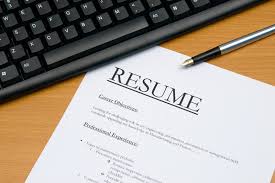All, as we move into the new normal, its important that we enhance our videoconferencing skills. It’s shocking the basic mistakes being made and the poor operating knowledge of the tools. Here are some thoughts. They are more focused on external calls and those more formal in nature vs. internal status/inform type calls. But a lot of the same rules apply.
Prior to a meeting:
- Make sure you or your company deploys a good service. Some are much better than others.
- Publish the agenda and meeting objective in the invite.
- Generally, keep meetings to no more than an hour. Allow time for Q&A.
- Try to schedule the meeting at least one day in advance. Being able to grab 2-3 people in an ad hoc fashion in the office is now impossible.
- Try to keep the meetings to 5-7 participants so that everyone can contribute. Nothing different from in person meetings except it is much harder to read faces.
- Ask the audience to be on the video camera as well.
- You face on the video-conference is very important.
- Make sure the invite has an easy series of clicks to connect. Attendees should not have to re-enter a meeting ID. It should be single click.
- When using equipment or locations not regularly used, test your meeting connections in advance.
- Make sure you know how to use the mute/unmute button – it’s shocking how many people fumble with this.
- Make sure you know how to use the “share” feature in case you are called upon to share something. (and make sure you don’t have any other apps open that users could see when you share!).
- If you are the leader or key participant, join 5-10 minutes in advance of the scheduled time. Have the camera on as well. If others join you should have some useful banter before the meeting.
- Create a backup communication plan in case you have trouble connecting with remote participants.
- Ensure microphones and/or your headpiece works.
- Be at your desk in front of your computer. Only join by cellphone if the former is impossible.
- Ensure location lighting does not limit a participant’s visibility (e.g., avoid backlighting from windows or lamps).
- No untidy bookshelves or clothes lying around in the background.
- Be in a quiet place in your home (no dogs barking, family distractions, home delivery interruptions etc.)
- If its impossible to prevent distractions from young kids, inform the group up front. People will understand and you won’t be embarrassed if a kid makes “an appearance”.
- Pay attention to what’s in the background of your video-frame (use good judgement – you are communicating based on what is hanging on the wall behind you!)
- You need to look presentable (hair done, nice shirt, no baseball caps etc.). Avoid clothes with sport’s team logos. Dress as if you were meeting in their offices.
- Look at yourself in the mirror in advance to be sure you are projecting the image you intend.
- Drinking coffee or water is ok. Eating is not.
- A “front-on” camera positioning is preferred vs a “side angle” when you can easily be seen to be doing something else on your computer.
- Practice and have a dry run based on the level of importance.
- If there are dual presenters, know who is covering what slide/topic. Nothing more irritating than two people, who should be in alignment, taking over each other. Also, dilutes the message.
During a meeting:
- Ask all participants share their video and audio. No lurkers.
- Turn the camera off if you need to use the bathroom.
- Remember when you stand up, we can see what you are wearing below your waist.
- Announce everyone and/or ask each person to identify themselves.
- Ensure all participants can see and hear all others.
- Make sure everyone knows how to use the chat function.
- Ask all participants mute their microphones when not talking.
- Turn notifications off if you are presenting. Nothing like an ill-timed Slack message to embarrass someone.
- Make sure browser tabs are kept to a minimum. Or at least none for Amazon or LinkedIn!
- Have a meeting facilitator — often the person who called the meeting. The facilitator is responsible for:
- Briefly restating the provided agenda and desired outcome;
- recognizing the visual or verbal cues to indicate when someone wants to contribute;
- engaging participants (making sure each participant says something is a good goal);
- limiting “side conversations” and multitasking;
- when two people are talking at once asking that one continue and then coming back to the other;
- avoiding “rat-holes” or “off topic” conversations (park for another time);
- leaving time for Q&A;
- ending on time;
- Making sure follow up tasks, owners and timelines are identified;
- If necessary, scheduling follow on meeting while everyone is on with their calendars in front of them.
- Do not type or multi-task when you are on the meeting – its surprisingly easy to spot
- Ask for feedback especially if someone is not engaged (not asking questions/not on camera)
- Presentations should be generally 50% shorter (vs. in person)
- Ask questions more regularly to engage the audience
- Content provided must be more graphical and make sure it’s in large enough font for your audience to see
- Presentations need to be more engaging because it’s very easy for the audience to be distracted or multi-task
- Remember you are on camera – be mindful of what you are doing – particularly your hands.
After the Meeting
- Publish meeting minutes and the action items with owners and dates
- Send the invite for the next meeting right away
- Send follow up notes
- Ensure others follow up on their agreed upon actions
- Check in by phone with anyone who did not appear to be engaged
Check on natural gas detector.









